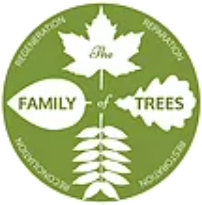Why grow your own food? For many people, it is one simple and rewarding thing they can do to make a difference in their own lives and help the environment at the same time. Some may wish to reduce their use of natural resources such as oil, or to provide some food security to their families in the wake of a major event such as a terrorist attack or a massive food recall. As a Master Gardener, I have observed an increase in questions regarding all types of food gardening over the past several years. Vegetable growing classes are often filled, and not always with just young, first-time gardeners. Our gardening students are from all age groups, income levels and nationalities, making each class a melting pot.
Farmers’ markets are experiencing a strengthening of support in their communities as their customer base expands. Many visitors first learn here that produce is a seasonal commodity, which may spark interest in eating in harmony with the seasons. These market visitors soon realize that the vegetables are fresh and flavorful in comparison to supermarket vegetables, and they become interested in growing their own. And so the journey to learn about growing food starts.Â
For some, popular books such as The Omnivore’s Dilemma by Michael Pollan, movies such as Food, Inc, or thumbing through a classic gardening book may spark an interest in knowing how and where their food is grown. Others begin with a desire for safe, fresh food, grown locally, and discover that they can produce some of the food needed by their family and save money at the same time. Community gardens are a popular option for people who lack their own growing space. These gardens bring a wonderful sense of connection to their community.Â
Some may view this interest as a return to the old way of doing things, but I think it reaches beyond that. Many of us see how interdependent we all are, and that our actions influence others. People are seeing that some resources may be finite, and that we need to look at our lifestyles in a new way. Growing vegetables in your garden or landscaping your yard can have a positive impact on your health and your financial bottom line, your community and even the world. The money you save with creative landscaping is money that you then have available for other purposes. The food you grow and eat helps you to be a healthier, more productive member of society, which benefits the entire community.
So, pull out that trowel and take action! Exchange some lawn for a vegetable or flower plot; spend time in the front yard and meet the neighbors while weeding; bring a bounty of fresh vegetables to the potluck at the office or the next block party. Cut a bouquet of flowers from your yard for the elderly neighbor who can no longer garden. Take a community class on gardening, chickens, rain gardens or native plant landscaping. Plant your boulevard for the enjoyment of all who pass. Recycle everything you can. Whatever you use, use it wisely and with knowledge of where it came from, how it got to your hands, and where it will go once it leaves your hands.
As for me, I have a few ‘weeds’ to pick and feed to the chickens, some beans to harvest and share with my neighbor, and then I will enjoy a cup of mint tea, fresh from my garden, while I decide where I can plant some more blueberry bushes.
Fresh Food from Small Spaces: The Square-Inch Gardener’s Guide to Year-Round Growing, Fermenting, and Sprouting, by R.J. Ruppenthal, Chelsea Green, 2008.







